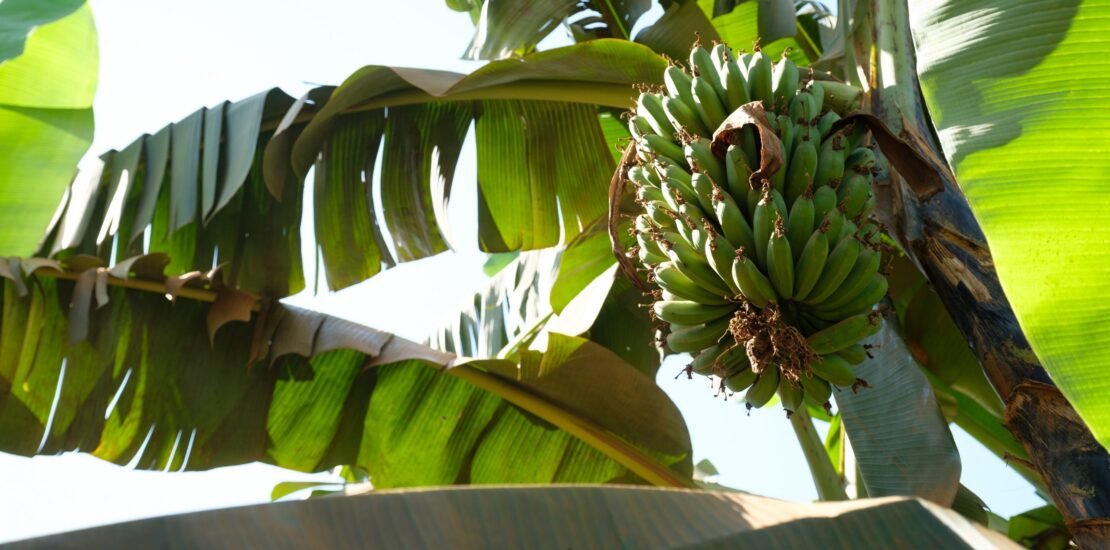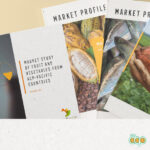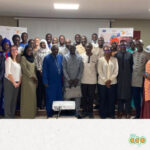News Digest: Agri-food production
- 19/11/2020
- Posted by: Emmanuel Bourcelet
- Category: Bananas, Cucumber, Melons, News, Onions, Pineapples, Tomatoes, Watermelons

AFRICA
Climate change increasingly threatens vulnerable Africa
A recent report from the World Meteorological Organization states that climate change is having significant impacts in Africa (Commodafrica, 28 October). These impacts are likely to worsen in the future, particularly for food supplies, economies and health. The main risks for agriculture are reduced crop productivity (heat and drought); increased pest and disease damage; and the effects of floods on food system infrastructure.
Aerial imagery detects and tracks banana threats
New research shows how a combination of imagery from mobile phones, drones and satellites can be used to combat threats to banana production (IPP Media, 7 November). The images are fed into a platform that uses machine learning to identify banana crops and analyse threats. The research case studies, conducted in the Democratic Republic of Congo and Republic of Benin, have important implications for the 90 million people in East, West and Central Africa who rely on bananas and plantains as a primary food source.
Locust plague descends on SADC
As the rainy season approaches in Southern Africa, fears are rising of a locust infestation (The Southern Times, 6 November) Namibia, Botswana, Zimbabwe, Zambia and most recently Angola have already been affected. This follows bad harvests in May, a 2-year long drought, and lockdown measures to stem the coronavirus pandemic.
Zambia sprays 10,000 hectares to contain locusts
Zambia has so far sprayed about 10,000 hectares of land as part of efforts to control the African migratory locust breakout (13 October, 2020), reducing the locust population by 85–95%. Michael Katambo, Minister of Agriculture, noted the need for concerted efforts with neighbouring countries, and engagement with the Namibian authorities.
CORAF: New tool to improve seed delivery
A new online tool to improve the delivery of seeds in West Africa was recently launched by the West and Central African Council for Agricultural Research and Development (CORAF/WECARD) (Africa Science News, 6 November). The seed demand forecasting tool is used to project potential and actual demand for seeds to support both the public seed sector and private seed companies.
Cameroon: Sharp drop in banana exports
Cameroon’s banana exports fell by 19,387 tonnes between January and September 2020 compared to the same period last year, according to ASSOBACAM, the Cameroon Banana Association (Commodafrica, 23 October). The fall over the first nine months of the year would have been heavier if there had not been a strong recovery in September.
Ghana: Results of agriculture census
The first results of the latest agricultural census, conducted between 2017 and 2018, state that 2.6 million households are in agriculture (11.3 million people, 38% of the total population) (Commodafrica, 22 October). Agricultural activity is essentially rural with little innovation and modernisation, and the use of modern tools and equipment (e.g. tractors, ginners, tillers) is negligible. Crops are mainly rainfed and fertilisers are little used.
Ghana: Processes to get GMO cowpea approved
The Savannah Agricultural Research Institute (SARI) has announced it will officially request approval from the National Biosafety Authority to put genetically modified cowpea variety into the hands of farmers outside confined experimental fields (MyjoyOnline, 19 October). The application for environmental release of the Bt cowpea variety, which is resistant to pod borer (Maruca vitrata), will be made following an internal review process which is currently ongoing at SARI.
Kenya: Herb farmers to benefit from EU market access project
Kenyan farmers in 12 counties will benefit from a European Union-funded project promoting competitiveness and market access for herbs and spices (Daily Nation, 15 October). The Market Access Upgrade Programme (MARKUP) Kenya is implemented by the United Nations Industrial Organisation (UNIDO) in partnership with the government and the private sector. In addition to herbs and spices, the project also focuses on the groundnut, mango, passion fruit, chilli, macadamia, French bean and snow pea value chains.
Nigeria: Price of onions rising
Soaring demand, flooding and a poor storage situation seem to be the main causes of the skyrocketing price of onions in Nigeria (Premium Times, 6 November). In some areas, the price of a bag of onions has risen by nearly 200% per cent.
Togo 2020/2021 agricultural campaign
In preparation for the new 2020/2021 agricultural campaign (AgriDigitale, 5 November), the Government is supporting three main activities: intensification of the use of quality agricultural inputs, with the objective of a productivity gain of 8–10% per year; intensification of agricultural mechanisation, aiming for mechanised agricultural tools used by 10% of producers; and intensification of irrigation, with the provision of 40,000 drip irrigation kits to producers.
Zimbabwe: Tomato leaf miner threatens crops
Farmers in various parts of the country are struggling to control and eliminate the tomato leaf miner (Tuta absoluta), which tunnels through leaves, threatening tomato production and trade (The Herald, 11 November). The disease which mainly targets tomatoes, tobacco, eggplants and cabbages, is spreading rapidly in most parts of the country.
CARIBBEAN
New pink-fleshed pineapple launched
Del Monte Fresh Produce has announced the launch of its newest product, the Pinkglow™ Pineapple (Fresh Plaza, 13 October). Unique to the market, the pineapple is produced in ultra-limited harvests, grown on a select farm in Costa Rica, and takes up to 24 months to produce. Fresh Del Monte’s two largest farms are certified sustainably grown by SCS Global Services.
PACIFIC
Tonga: New Zealand suspends watermelon imports
Imports of watermelon from Tonga were suspended after live fruit fly larvae were detected at the New Zealand border (Stuff, 16 October). The Ministry for Primary Industries temporarily suspended imports of watermelon from Tonga, effective immediately, pending an investigation into non-compliance by the Ministry of Agriculture and Food, Forestry and Fisheries in Tonga.
EUROPEAN UNION
Rising adoption of AI in agribusiness
The market size of global artificial intelligence (AI) in agriculture is projected to grow at a CAGR of 25.4% over the forecast period 2019 to 2025, according to a new report by Million Insights (FPC Fresh Talk Daily, 14 October). Uses of AI include predictive analytics and AI-enabled sensors to monitor soil and crop productivity.
Mediterranean fruit fly spreading in French orchards
The pressure of the Mediterranean fruit fly (Ceratitis capitata) is increasing due to climate change limiting mild winters (Réussir Fruits et Légumes, 21 October). It is widespread in all regions with a warm temperate Mediterranean-type climate, and is considered a quarantine pest in third countries to which France exports or wishes to export.
Virus of courgettes, cucumbers and melons detected for the first time in France
According to a press release from the Ministry of Agriculture, the Tomato leaf curl New Delhi virus (ToLCNDV), present in some European countries (Spain, Italy, Portugal, Greece), has just been detected in the Occitania and Provence-Alpes-Côte-d’Azur regions of France (Réussir Fruits et Légumes, 26 October). Precautionary measures have been implemented to prevent any spread of the virus by pruning tools or through its insect vector, the whitefly Bemisia tabaci.
GLOBAL
Webinar on soil health
Heliae Agriculture, an American grower of microbial soil nutrients, is holding a 2-day event starting on 17 November at 10:00 CST (Fructidor, 6 November). The webinar, part of a “Rethinking Soil Productivity” webinar series, will highlight soil health strategies for soil microbiome and soil health.
Watermelon and melon can be grown in the Arctic
A polar station in Russia has succeeded in growing watermelons and melons in greenhouses without additional heating, lighting or fertilisers (Fructidor, 23 October). In the future, scientists plan to start trials for kiwi and grapes.
Google’s new “moonshot”
Google parent company Alphabet, through its research lab X, is working on a “moonshot” project, which it calls “Mineral”, to see and understand crops in a radically new and different way (Commodafrica, 20 October). A solar-powered buggy drives autonomously through the fields, gathering data to inform machine learning that identifies patterns and information about how plants grow and interact with their environment.



